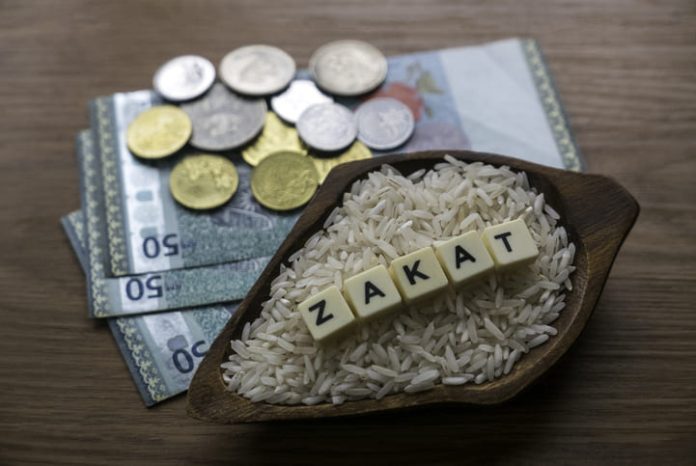Indonesia hosted the 10th World Water Forum in Bali on May 18–25, 2024. This forum is the largest convening that invites prominent stakeholders in the water sector, including heads of state, international agencies, experts, scholars, entrepreneurs, and others.
It is also important to note that in 2021, UN Water revealed that Asia Pacific, Sub-Saharan Africa, and the Arab Region, which are predominantly Muslim-populated, are the most susceptible areas for water availability. In this sense, Indonesia can play a significant role in leading the effort to achieve water for shared prosperity by showcasing zakat as an Islamic social finance instrument for alternative financing of water.
Islamic teachings highly promote hygiene and mindful water consumption. For instance, before ritual worship, Muslims are required to perform ablution to clean themselves physically and spiritually. In the Quran, there are more than 200 verses that use the word ‘water’ and elaborate on its usage and benefit for mankind.
The Prophet Muhammad SAW also taught Muslims how to behave toward water. He forbade defecating in stagnant water, under fruit-bearing trees, or in holes in the ground. This is because it can become a vector for spreading disease or disturbing other living creatures.
He also warned his companions not to use water excessively, even if they were in an abundant water area. The practice of zakat also reflects mindful water consumption. Islam penalizes a higher zakat rate for rain-fed agricultural activities than irrigated ones. This illustrates how Islam provides incentives for responsible water usage by charging lower rates.
The head start of zakat utilization for water financing in Indonesia was the issuance of fatwa No. 001/MUNAS-IX/MUI/2015 by Majelis Ulama Indonesia. It allows zakat, infaq, and waqf to finance water and sanitation. The fatwa represents the spirit of achieving water for shared prosperity. In this sense, zakat redistributes the wealth excess to gain fair water access and proper sanitation for the poor.
The fatwa issuance was then followed by an agreement signed between the Ministry of Development Planning, UNICEF, BAZNAS, and BWI in 2017 to increase access to safe drinking water and reduce the open defecation rate. Since then, various projects have been kicked off to improve universal access to water and sanitation.
First, zakat is structured to finance community-based water provision projects. In this regard, zakat institutions involve the community in doing preliminary program assessments, building water provision facilities, and conducting capacity building to maintain the premises. BAZNAS has established community-based water provision facilities at more than 21 locations in Java, Sumatra, Sulawesi, and Nusa Tenggara by utilizing zakat funds.
Then, zakat plays an innovative financing instrument for reducing open defecation rates through sanitation programs. In 2017, Bappeda NTB and BAZNAS NTB started a collaboration to improve sanitation access in 10 regencies, namely Kota Mataram, Kota Bima, Bima, Dompu, Sumbawa, Sumbawa Barat, Lombok Timur, Lombok Barat, Lombok Utara, and Lombok Tengah. During the three years of project implementation, $920,000 (IDR 13.9 billion) has been allocated for this initiative. The program benefits 7,776 people in 36 villages in the form of 645 renovated houses and 888 latrines.
Zakat is also used to reduce the impact of severe droughts on underprivileged communities. For instance, Dompet Dhuafa uses zakat funds to help poor families access fresh water so that it can reduce their spending on obtaining water. Dompet Dhuafa Disaster Management Center stated in its El Nino mitigation report that in 2023 it distributed fresh water to 11,134 people in 11 locations covering areas in Java and Kalimantan.
Moreover, zakat and donations have also been used for water conservation. In 2015, the Zakat Organization Forum (FOZ) established 900 infiltration wells to increase water discharge in springs in Mojokerto. Through this program, it is estimated that around 392 million liters of water can be reserved back to the ground annually.
During the COVID-19 pandemic, zakat was widely used to provide handwashing facilities in public spaces and improve community awareness of good hygiene practices to inhibit the spread of the virus. This initiative has attracted the Islamic Development Bank to amplify the impact by donating their funds to establish handwashing drives in 78 schools, benefiting 19,000 students.
Furthermore, capacity building and training activities have been conducted to improve the quality of zakat distribution for clean water and sanitation programs. In 2020, BAZNAS collaborated with UNICEF and Bappenas to launch zakat distribution technical guidance for financing water and sanitation.
Moreover, BAZNAS published the BAZNAS Index for Sustainability of Clean Water and Sanitation (BI WAS). This is a standard measuring tool that calculates the progress and achievements of the zakat distribution program for clean water and sanitation. The main measurements in this index are measurement regarding water facilities, public toilet facilities, cleanliness, and behavior. This index helps zakat institutions conduct impact measurement beyond the physical aspect and also recognize community behavioral change aspects.
From the observed best practices above, zakat has three main advantages for becoming an alternative water financing instrument. First, the fatwa issuance on the permissibility to use zakat for water financing gives much more flexibility to zakat compared to the highly bureaucratic government budget. This flexibility becomes much more relevant in times of disaster when immediate help for safe water access and proper sanitation is needed. Second, zakat becomes much more impactful because it targets low-income families. This arrangement may complement the government’s program for poverty alleviation.
Thirdly, community involvement during the project implementation may increase the sense of belonging to the facilities. The recipients of the program will tend to preserve the facilities because the development of infrastructure acknowledges their voice and aspirations, not merely constructed by a third party that is outside of the community. In addition, it also increases transparency and trust, which can ignite more donations from the public to replicate the program.
Despite the progress that has been made, several improvements can be suggested. First, it is important to widen the fatwa socialization of zakat permissibility for water financing. Because there is quite a significant part of society that still believes that zakat can only be allocated for basic needs like staple food.
Second, it is necessary to improve the capacity of zakat institutions to disburse zakat on water and sanitation programs. They should have the capacity to run monitoring and evaluation programs as well as produce impact reporting to increase public trust in this initiative.
Lastly, embracing international collaboration is worth considering. In 2019, the World Zakat Forum endorsed each of its members to strengthen international collaboration with UNICEF and UNDP to achieve the SDGs. Now, as the host of the 10th World Water Forum, Indonesia should step forward to emphasize potential collaboration between zakat institutions and international agencies and entrepreneurs for water financing to achieve shared prosperity.
About the Author

Randi Swandaru is a PhD candidate in Islamic finance at INCEIF University, Malaysia. Former Deputy Director at BAZNAS and INDEF School of Political Economy Alumni.




































































